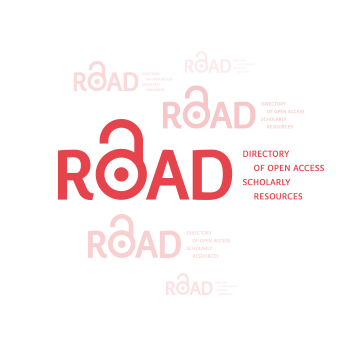Interweaving prisoners’ voices and citizens’ perceptions: A social justice and community-based pedagogy project
Resumen
Engaging learners' social contexts while exploring the community in the English class do not only enhance language skills but also other abilities that promote a social change. In fact, this paper indicates how citizens’ perceptions about convicts were enriched after the publication of some reflections based on the interaction between a group of eleventh graders and people in jail. To do so, the participants carried out a project during 3 sessions in which they mapped the community, noticed different assets, chose a place and problematic to be focused on (the jail), collected some people’s conceptions about captives, interacted with them (convicts), reflected about the encounter, shared the acquaintance through English and Spanish posters with the community, and listened to their reactions. By the same token, for achieving this study purposes, it was required to follow the essence of three approaches: Community-Based Pedagogies (CBPs), Funds of Knowledge (FoK), and Social Justice (SJ). Therefore, this pedagogical innovation revamped and fostered some competences, such as: language skills, critical thinking, enrichment of perceptions, local awareness, autonomy, and values.
Descargas
Citas
Ary, D, Cheser, L., Sorensen, C., & Razavieh A. (2010) Chapter 18: Action research. In C. Shortt., T. William., & C. Cox (Eds.), Introduction to Research in Education (pp. 512-551). Wadsworth, Cengage Learning.
Burke, R. & Christensen, L. (2014) Chapter 2: Quantitative, qualitative and mixed research. In R. Hester, T. Accomazzo, R. LeBlond, L. Barrett, P. Fleming, & J. Barron (Eds.) Educational Research Quantitative, qualitative, and mixed approaches (pp. 78-115) SAGE Publications, Inc.
Burke, R. & Christensen, L. (2014) Chapter 3: Action research for lifelong learning. In R. Hester, T. Accomazzo, R. LeBlond, L. Barrett, P. Fleming, & J. Barron (Eds.) Educational Research Quantitative, qualitative, and mixed approaches (pp. 115-141) SAGE Publications, Inc.
Clavijo, A., & Ramirez, L.M. (2019). Las pedagogías de la comunidad en contextos urbanos: un enfoque de formación docente a través de investigaciones locales. Lectoescrinautas.
Clavijo, A., & Rincón, J. (2016). Fostering EFL learners’ literacies through local inquiry in a multimodal experience. Colombian Applied Linguistics Journal, 18(2), 67-82. https://doi.org/10.14483/calj.v18n2.10610
Griffee, D. (2012). An introduction to second language research methos: Design and Data. TESL-EJ Publications. First edition. M.E. Sokolik, University of California, Berkeley.
Hastie, P., & Hay, P. (2012). Qualitative approaches. In K. Armour & D. Macdonald (Eds.), Research methods in physical education and young sports (pp. 79-94). Routledge.
Lastra, S. P., Acosta, D., & Durán, N. C. (2018). Community based pedagogy as an eye–opening for pre-service teachers’ initial connections with the school curriculum. Colombian Applied Linguistics Journal, 20(2), 196-209.
https://doi.org/10.14483/22487085.13047
Llopart, M., & Guitart, M. E. (2018) Funds of knowledge in 21st century societies: inclusive educational practices for under-represented students. Journal of Curriculum Studies, 50(2), 145-161. https://doi.org/10.1080/00220272.2016.1247913
Medina, R., Ramírez, M., & Clavijo, C. (2015). Reading the community critically in the digital age: a multiliteracies approach. In P. Chamness Miller., Mantero. M, & Hendo. H. (Eds.), ISLS readings in language studies. (Vol. 5, pp. 45-66). International Society for Language Studies. https://doi.org/10.13140/RG.2.1.2636.6563
MEN. (2016). Derechos básicos de aprendizaje inglés grados 6° a 11°. https://santillanaplus.com.co/pdf/DBA-ingles-espanol.pdf
Monreal, T. (2019). The middle school studies curriculum as a site of struggle for social justice in education. In R. Papa (Ed.), Handbook on promoting social justice in education (pp. 1–29). Springer. https://doi.org/10.1007/978-3-319-74078-2_61-1
Ngubane, N. I., & Makua, M. (2021) Intersection of Ubuntu pedagogy and social justice: Transforming South African higher education. Transformation in Higher Education, 6(0), 1-8. https://doi.org/10.4102/the.v6i0.113
Nieto, S. (2006) . Teaching as political work: learning from courageous and caring teachers. Spring.
Saldana, J. & Omasa, M. (2017). Chapter 3: Analyzing documents, artifacts, and visual materials. Qualitative research: Analyzing life. (pp. 63-88). SAGE publications, Inc.
Sharkey, J. (2012). Communities based pedagogies and literacies in language teacher education: promising, beginnings, intriguing challenges. Ikala, Revista de Lenguaje y Cultura, 17(1), 9-13. https://doi.org/10.17533/udea.ikala.11519
Sharkey, J., Clavijo, A., & Ramirez, L. M. (2016). Developing a Deeper Understanding of Community-Based Pedagogies With Teachers: Learning With and From Teachers in Colombia. Journal of Teacher Education, 67(4), 306–319.
https://doi.org/10.1177/0022487116654005
Verdín, D., Smith, J. M., & Lucena, J. (2021). Funds of Knowledge as Pre-College Experiences that Promote Minoritized Students’ Interest, Self-Efficacy Beliefs, and Choice of Majoring in Engineering. Journal of Pre-College Engineering Education Research (J-PEER), 11(1), 192-213. https://doi.org/10.7771/2157-9288.1281
Vetter, A., Faircloth, B. S., Hewitt, K. K., Gonzalez, L. M., He, Y., & Rock, M. L. (2022). Equity and Social Justice in Research Practice Partnerships in the United States. Review of Educational Research, 92(5), 829–866. https://doi.org/10.3102/00346543211070048
Volman, M., & Gilde, J. (2021). The effects of using students' funds of knowledge on educational outcomes in the social and personal domain. Learning, Culture and Social Interaction, 28, 1-14. https://doi.org/10.1016/j.lcsi.2020.100472
Zohrabi, M. (2013). Mixed method research: instruments, validity, reliability and reporting findings. Theory and Practice in Language Studies, 3(2), 254-262. https://doi.org/10.4304/tpls.3.2.254-262
Derechos de autor 2023 David Giovanny Téllez Soler

Esta obra está bajo licencia internacional Creative Commons Reconocimiento 4.0.













.png)




















.png)
1.png)


